Whether you’re a backyard homesteader or have access to a local farm, you may be wondering how to store farm fresh eggs the RIGHT way. Should they be washed or remain unwashed? In the fridge or on the counter? How long do they last? What is a bloom coating?
If you’re wondering these questions, you’re in the right place! I had these same questions when I first started with chickens in 2014, but now I have it down to a science and I can’t wait to share all my best tips with you!
At the end, we’ll even chat about some different ways you can preserve eggs to enjoy months (or even years) later. Let’s dive in!
*Disclosure: This post may contain affiliate links to products (including Amazon). I’ll earn a small commission if you make a purchase through my link, at no additional cost to you! Regardless, I only link to products that I personally use on our homestead or believe in.
All About the Bloom
When an egg travels down the hen’s oviduct, the bloom coating is the very last step before it’s laid. Think of it as the final coat of paint that gets sprayed on a car as it nears the exit of the production line.
That final bloom coating (also called the cuticle) is composed of two layers of a watery fluid that coats the shell and quickly dries after the egg is laid. It almost has a powdery, soft texture to it once dried and can even mute or alter the true egg color if the coat is thick enough.
- Brown eggs can appear pink
- Dark brown eggs can appear purple
- Tinted eggs can appear pastel rather than vibrant
Its purpose is to seal the contents of the egg to prevent spoilage and allow it to be stored at room temperature. Eggs have 7,000-17,000 pores and without the bloom coating, pathogens would rapidly enter the inside of the egg. No thanks!
An original study investigated this and found that water mixed with carbon black rapidly flooded the inside of eggs that had the bloom coating removed. Now, imagine the same thing happening with chicken poop, mud, you name it! Ish!
History of egg washing
So, why do we wash eggs? I find it interesting that egg washing is mandatory in the USA (unlike most of the rest of the world), which removes that protective bloom coating and thus requires the eggs to be refrigerated. This came about in the 1970s due to “concerns about spoilage and foodborne illnesses.”
Sounds a lot like the outlawing of raw milk in the 1980s and requiring pasteurization, doesn’t it? Most of the world doesn’t wash and refrigerate their eggs, so why do we do it?
When egg production (or anything else for that matter) moves from the small farmer to large commercial operations, things get messy. The eggs are dirty. The environment is dirty. The hens are sick. The list goes on.
Why should a farmer put care into good animal husbandry if they can just wash the eggs, spray them down with a chemical sanitizer, and coat them with mineral oil instead? Integrity is LOST.
Before, the farmer knew that he/she couldn’t sell eggs that were dirty and spoiled, so they took care in maintaining the quality and well-being of their flock.
Should I wash my eggs?
I personally never wash my eggs. Remember how porous those eggs are? If you wash an egg that has poop dried on it, the poop can potentially get pushed through into the egg.
Washing an egg with water that is slightly warmer than the egg will help reduce this risk, but why risk it in the first place? While it is unsightly, light soiling isn’t problematic. That intact bloom coating protects the egg contents.
If I have some dirty eggs (especially on those rainy days!), I just make sure that we use those up first and then I tuck away the clean ones for eating at a later time or I water glass them. Keep reading to uncover my tips for keeping eggs clean in the coop!
Lastly, if I find an egg that is pretty filthy or has a compromised bloom (found outside and subject to the elements), I just give those to my dogs. They love them!
How to Store Fresh Eggs
There are two main methods when it comes to storing fresh eggs: on the counter and in the fridge. It all comes down to whether the eggs have been washed or not, how long you want to store them, and your personal preferences. Let’s break them down!
Eggs on the counter
If you have some farm fresh eggs that still have the protective bloom coating intact, you can store them on the counter at room temperature for 3 weeks. Easy peasy! This is my favorite method and what we do most of the time on our homestead. Cooking with room-temperature eggs is so nice!
You can store them in clean egg cartons or cute spiral dispensers. As tempting as the plastic, reusable egg cartons are, I don’t recommend them. I used them for a while, but found that condensation forms and can lead to the eggs spoiling. Lastly, it’s best to store them pointy end down so that the yolk remains centered in the egg.
The reason why I said that this is what we do most of the time is that in the winter, the eggs can get cold before we collect them. If the eggs warm to room temperature, condensation forms, and the bloom coating can be disrupted. So, if the eggs get cooled they should remain cooled.
*If you are buying eggs from a local CSA or Farmer’s Market make sure to ask if their eggs have been washed or not before attempting this! DO NOT leave unwashed eggs on the counter!
The Homesteading RD's Product Picks: | |
How CUTE is this!? This easy-access spiral design can hold up to about 3 dozen eggs and makes it easier to make sure you're using the oldest eggs first. First in, first out! Only 6.9 inches in diameter, which is a great space saver! | |
Eggs in the fridge
If you have washed eggs, they have to be refrigerated since the protective bloom coating is gone, but you can refrigerate unwashed eggs as well! A benefit of refrigerating unwashed eggs is that they’ll have an extended shelf life. Expect them to last 3 months in the fridge.
One thing to note with washed eggs is that they will lose moisture rapidly when the protective bloom coating is gone. Most washed eggs at the grocery store are coated with mineral oil and stored in high humidity conditions (70%) to prevent this.
These humidity levels are nearly impossible to maintain with household refrigerators due to their defrosting cycle, but coating the eggs with a thin layer of oil can help extend their storage life. I’ve personally never coated my eggs in oil. If I need them to last for months, I just water glass or freeze dry them.
I recommend storing them in clean egg cartons with the pointy end down. As tempting as the plastic, reusable egg cartons are, I don’t recommend them. I used them for a while, but found that condensation forms and can lead to the eggs spoiling.
If you have unwashed eggs in the refrigerator, you may be tempted to move them to your counter after reading this to save fridge space. Don’t do that! Once the eggs have been cooled, they need to stay cooled. That’s because the bloom coating will be disrupted once eggs start to sweat after warming.
Tips for Gathering Farm Fresh Eggs
We’ve been raising chickens since 2014 and I’ve learned A LOT throughout the years! Here are my best tips for the best quality, clean eggs.
Keep the eggs clean
This is the ultimate goal, right? If the eggs come into the house looking pristine and beautiful, there’s absolutely no reason to wash them. Here are my best tips for keeping those eggs clean:
- Collect eggs several times a day (if possible) using an egg collection basket
- Replace the bedding inside the nesting boxes often
- Keep the coop clean with fresh bedding and add a covered run to keep the run dry
- Install a perch 8” in front of the nesting boxes so that the hens have a place to land before carefully walking in (prevents broken eggs)
- Provide supplemental calcium for strong eggshells
- Ensure adequate protein intake to limit egg eating
- Avoid overcrowding
- Discourage roosting in the nests (if you see droppings in the nests it’s because they are sleeping in them)
- If all else fails, try a rollaway nest! I used ones for years and loved it, but my hens weren’t big fans of using it, so I eventually replaced it. I miss those super clean eggs!
Keep the eggs warm
When winter rolls around, this brings a whole new challenge = frozen eggs. When eggs freeze, the contents expand and can crack the shell. This exposes the contents to the outside environment and the eggs are no longer safe for human consumption.
Even if the eggs only partially freeze, the contents are altered. When you crack one open into your frying pan for breakfast you’ll notice that it looks a bit funny. The yolk looks like a firm ball, rather than being soft and succulent. As long as the shell is intact, it’s safe for eating, but the texture is a bit weird.
Living in Minnesota, I’ve had to get creative when it comes to preventing frozen eggs. While you could run out there every hour or two on those -35F days, I’d rather not. I like to use heated seedling mats that inside the laying boxes – they work so well! Check out my YouTube video to see how I did it.
The best way to wash eggs (if needed)
If you decide to wash your eggs, make sure you’re doing it the right way! Wash the egg in water that is slightly warmer than the egg. If you wash in cooler water, this can cause bacteria to be drawn into the egg, which is the opposite of what you want!
Do you need to use soap? No, I’ve never found soap to be necessary. Make sure to dry the eggs thoroughly after washing, then place them in egg cartons and promptly store them in the fridge. A small bit of dried poop can also be gently brushed off with a scouring pad.
How to Tell if an Egg Is Rotten
The bloom coating can vary widely from hen to hen, and even from day to day from the same hen. Because of this, the shelf life of each egg varies so it’s important to be able to spot a bad egg in the batch.
The first thing that happens when an egg gets “old” is the quality of the white and yolk will deteriorate. The yolk will flatten instead of standing high and the white will get runny. At this stage, the egg is still completely safe to eat. Once it’s progressed to being rotten or bacteria-laden, then it’s time to toss it!
The classic float test is the best way to determine how old an egg is. Simply place the egg into a glass of water and observe what happens. A young egg has a small air cell and will sink, and an old egg has a large air cell and will float.
- Fresh egg: the egg rests on the bottom of the container, horizontally
- 1 week old: the egg rests on the bottom of the container, slightly tipped
- 2-3 weeks old: the egg stands vertically in the container with the tip touching the bottom
- 4+ weeks old: the egg floats
*Age is based on being stored at room temperature
An old egg isn’t necessarily a rotten egg. It’s still likely edible but will be worn out (sunken yolk, watery white). The best way to determine if an egg is rotten or not is to use your nose. The smell will be foul from hydrogen sulfide. Once you smell it, you’ll never forget it!
How to Preserve Eggs Beyond Refrigeration
While you can extend the life of your farm fresh eggs by throwing them in the refrigerator, there are some other methods you can use as well. Some of them will extend their life by a few weeks, while others will keep eggs fresh for 25 years – WOW!
Water glassing
Water glassing is a traditional, safe way of preserving eggs for long-term storage without the need for refrigeration! The process has been used since the early 1800s and involves mixing pickling lime or sodium silicate in water and submerging eggs in the mixture.
We’ve been water glassing for several years now and it is my favorite method. I love that the process is simple, the eggs can be stored at room temperature, and we can still cook them over easy for breakfasts. Check out my Water Glassing Eggs for Storage article for details on how to do it!
Pickling
Don’t let those dusty jars of pickled eggs at the grocery store deter you from trying these! Just like with all things, homemade is SO. MUCH. BETTER. Especially if you’re using fresh eggs from your own flock or a local CSA. The other plus with this form of preservation is that they’ll store for 4 months in the fridge!
Definitely check out my Jalapeno Pickled Eggs recipe! They are ready to eat in just 7 days, and no canning is required. You’ll be enjoying this protein-packed snack in no time.
Fermenting
I know fermented eggs sound a bit weird, but hear me out! They are tasty! Fermentation is entirely different from pickling in that there is no vinegar involved. Instead, it utilizes bacteria and yeast from the added starter to preserve the eggs. The use of salt also kills off bad bacteria while encouraging the growth of healthy bacteria.
If you’ve experimented with fermenting vegetables before and are ready to branch out, definitely give my Fermented Eggs Recipe a try! They don’t last as long as pickled eggs (2 weeks vs 4 months), but they are still worth the effort in my opinion.
Freezing
Freezing is a great, simple option! Gently whip up some raw eggs, pour them into a freezer safe container and freeze for up to 6 months. You’ll just need to remember to thaw them out ahead of time. I always forget, so that’s why I like freeze drying or water glassing – they are ready to go, anytime!
Freeze drying
Freeze drying is another favorite of ours on our homestead! I love that they are shelf stable and have a 25 year shelf life if stored in mylar bags – WILD! Freeze drying also does a great job of preserving the nutritional value, which is a big win in my book!
You can watch me freeze dry some raw eggs on Instagram if you like to see it in action!
The Homesteading RD's Product Picks | |
Freeze drying is my absolute FAVORITE way to preserve my harvest! It retains nearly all of the nutritional value, flavor, and texture! Plus, the food has a shelf life of up to 25 year when using mylar bags (WOW!) and rehydrates quickly, unlike with dehydrated food. | |
Dehydrating
While dehydrating eggs is technically possible, the results aren’t that great. The texture is quite odd and they take a long time to dehydrate. I’d stick with the options above.
Other Articles You’ll Love:
- Water Glassing Eggs for Storage
- Fermented Eggs Recipe (EASY!)
- Jalapeno Pickled Eggs (No Canning Necessary!)

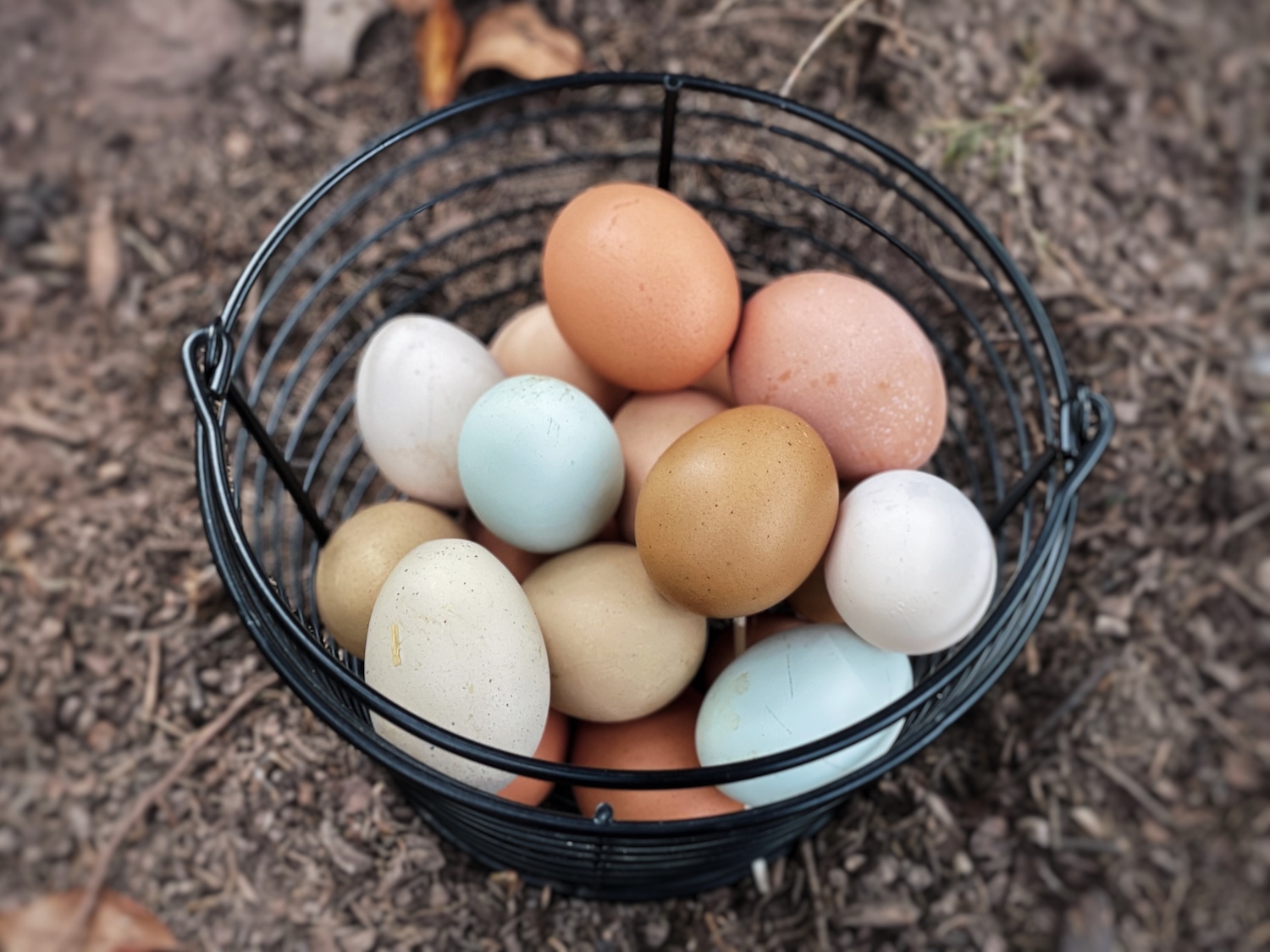
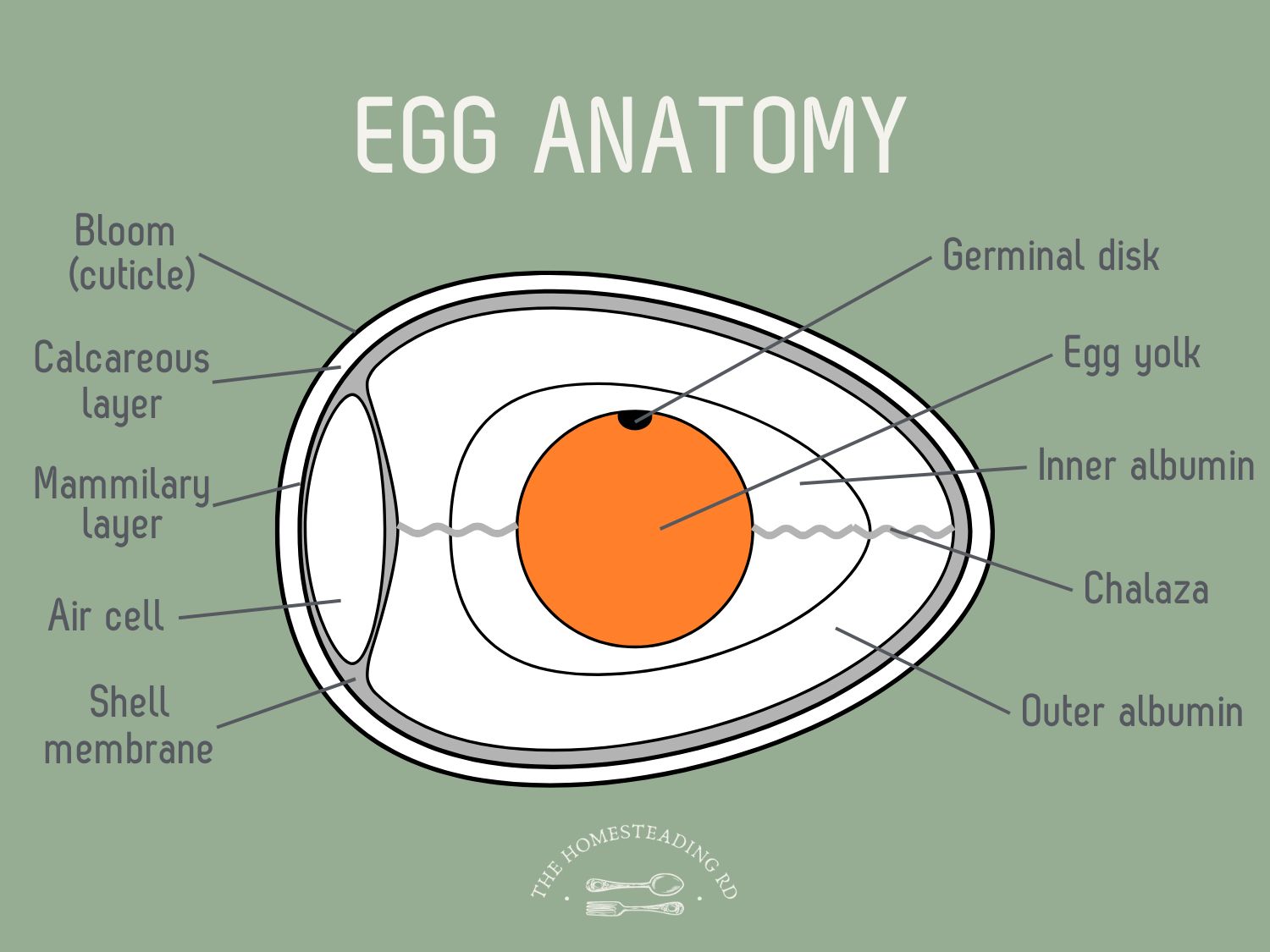
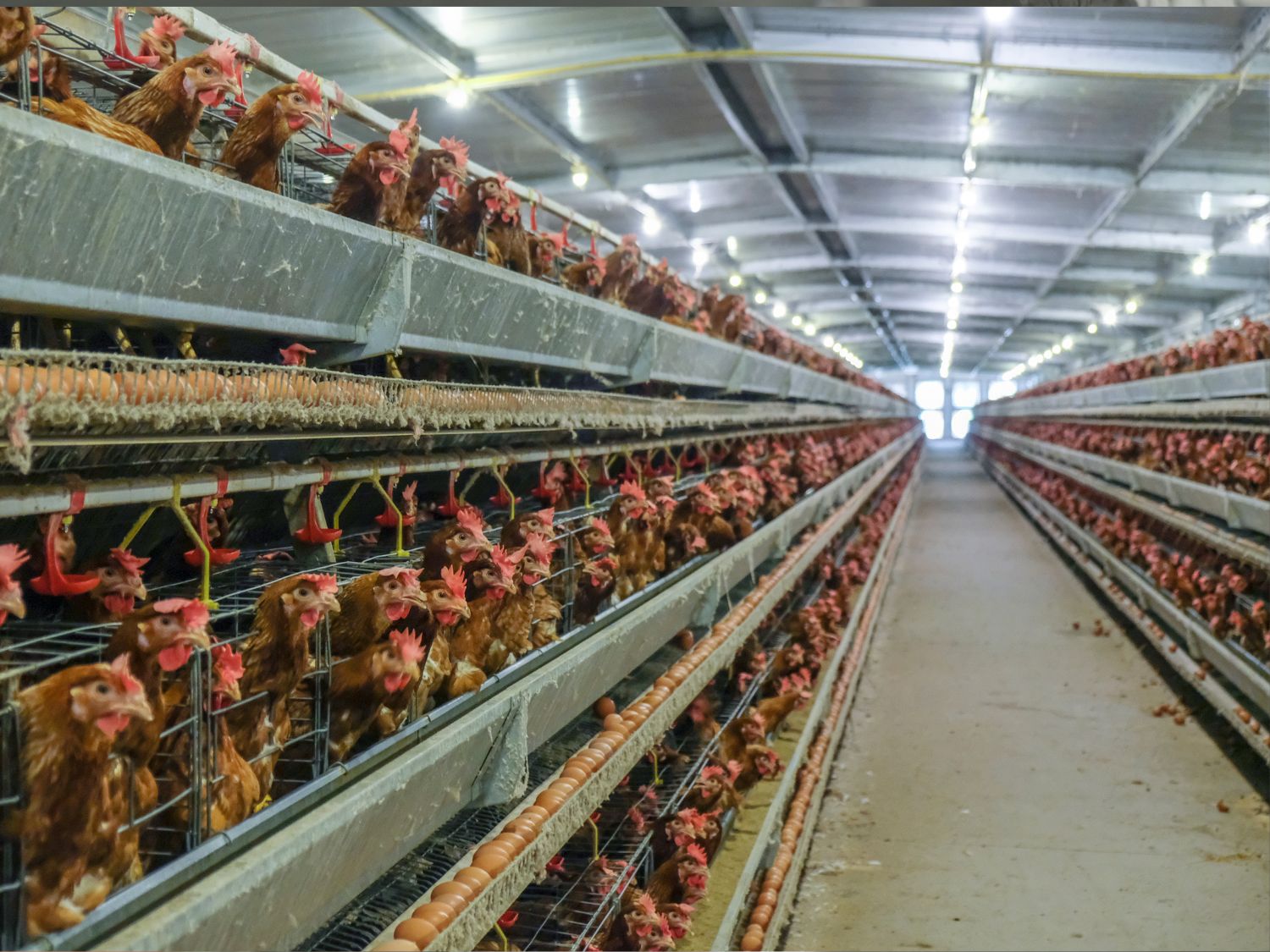
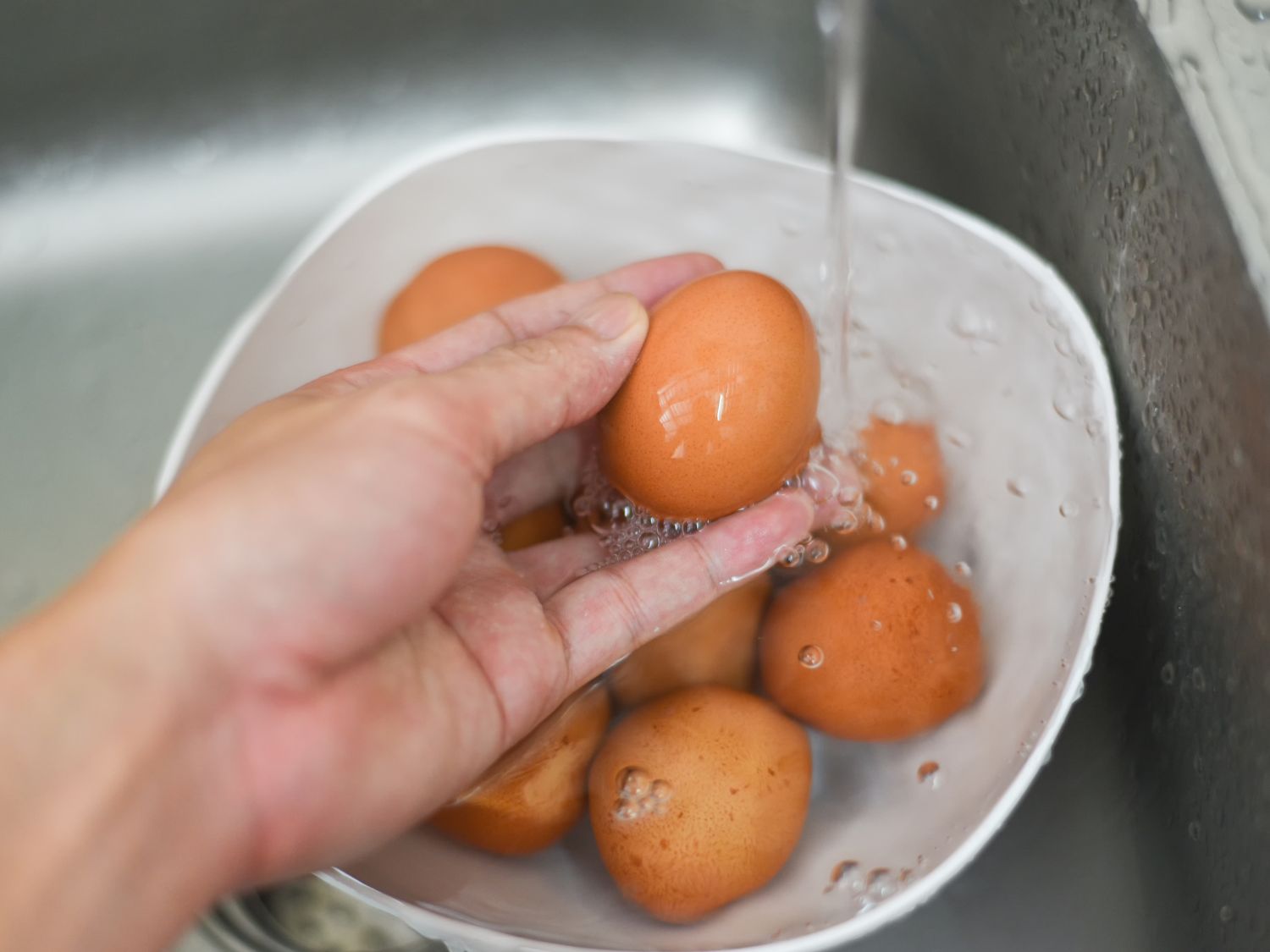

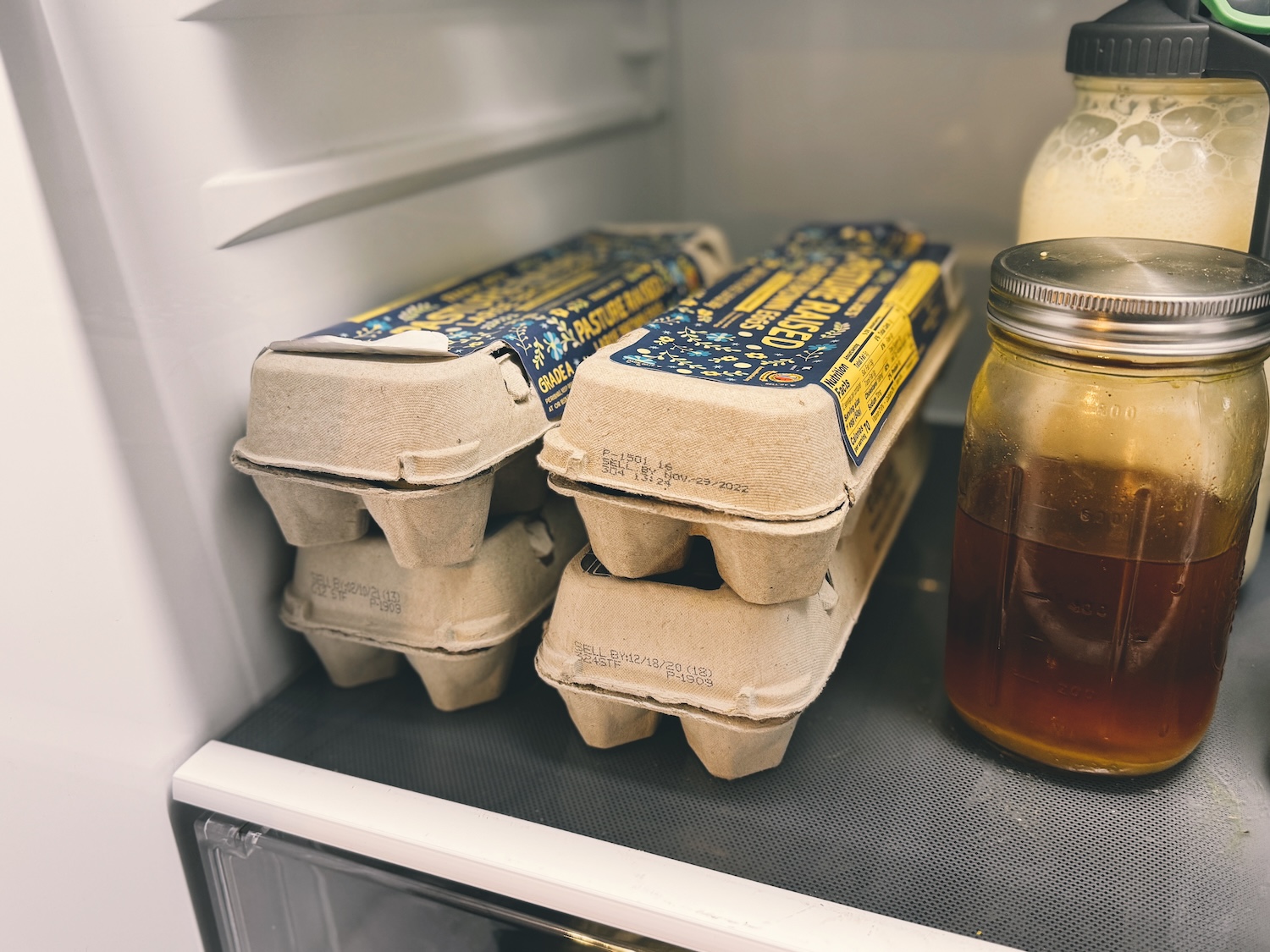
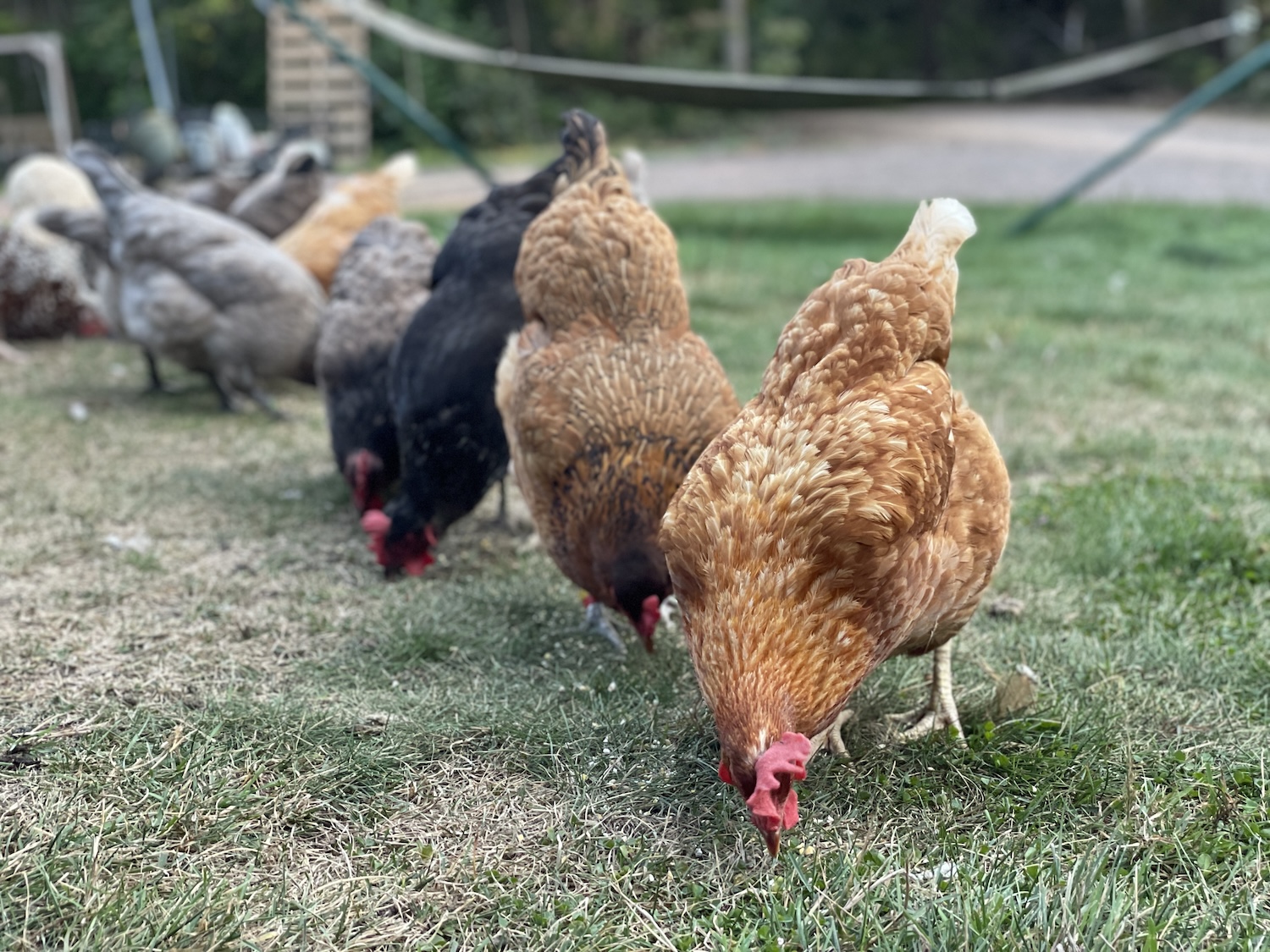
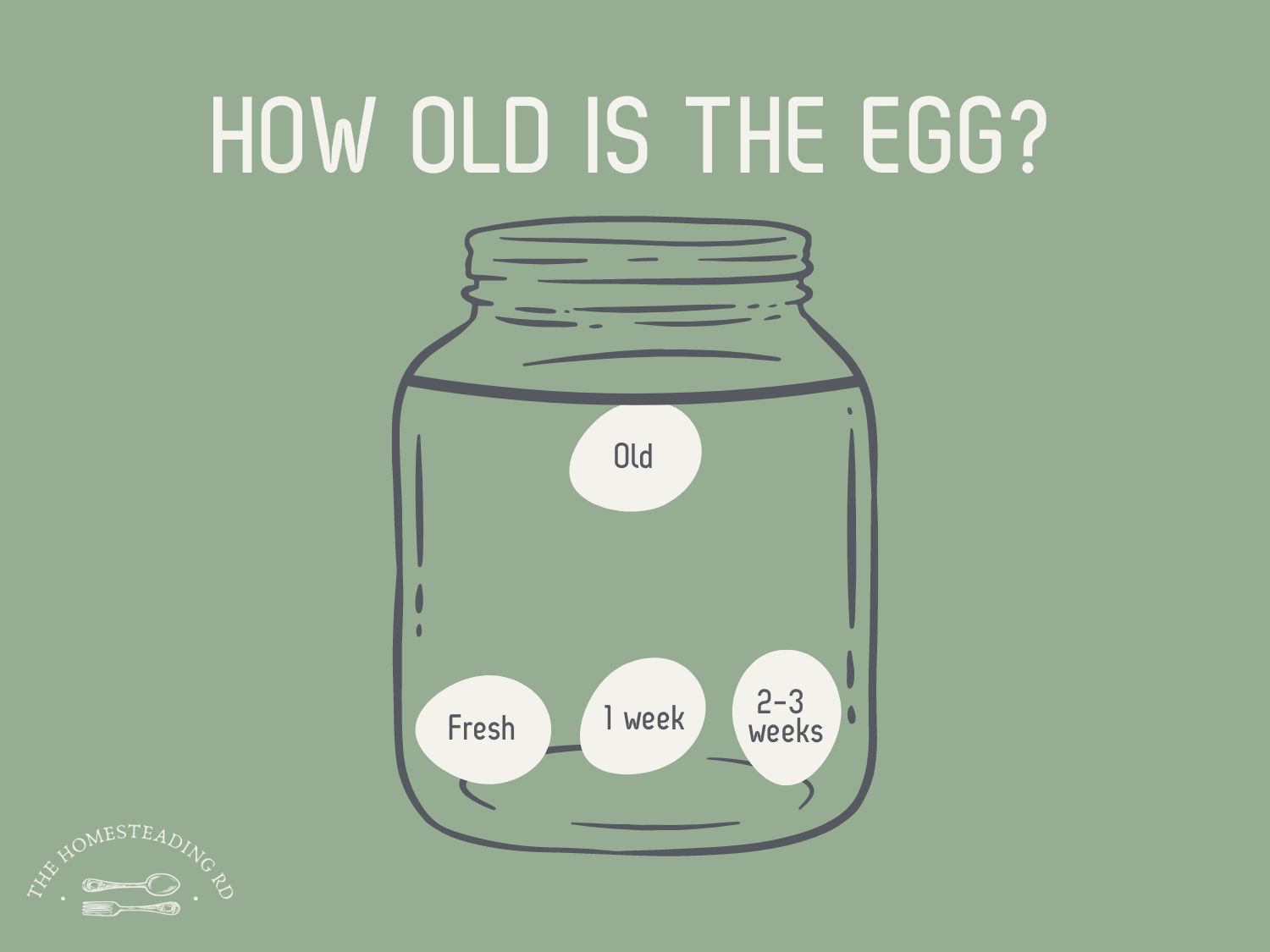
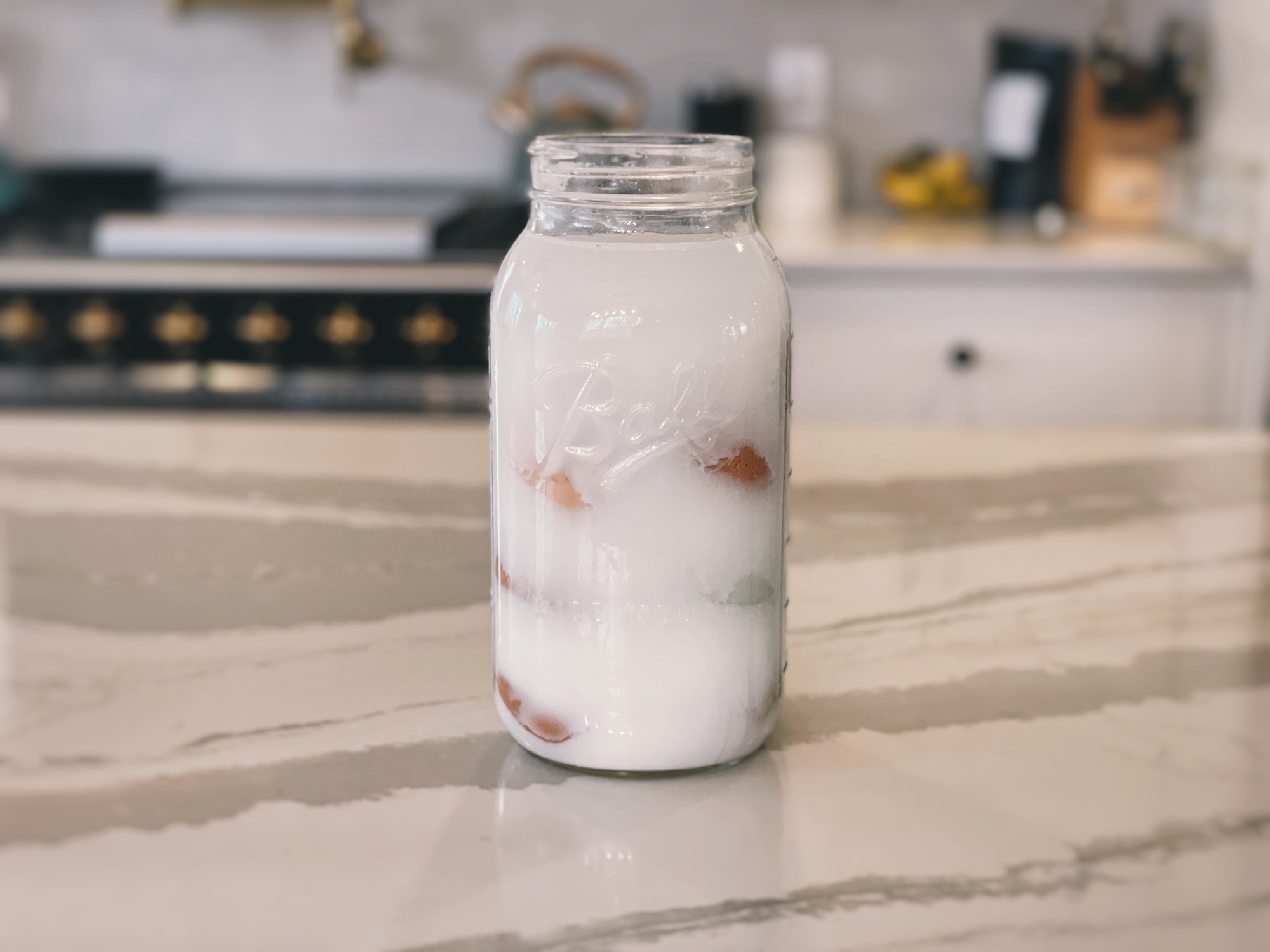
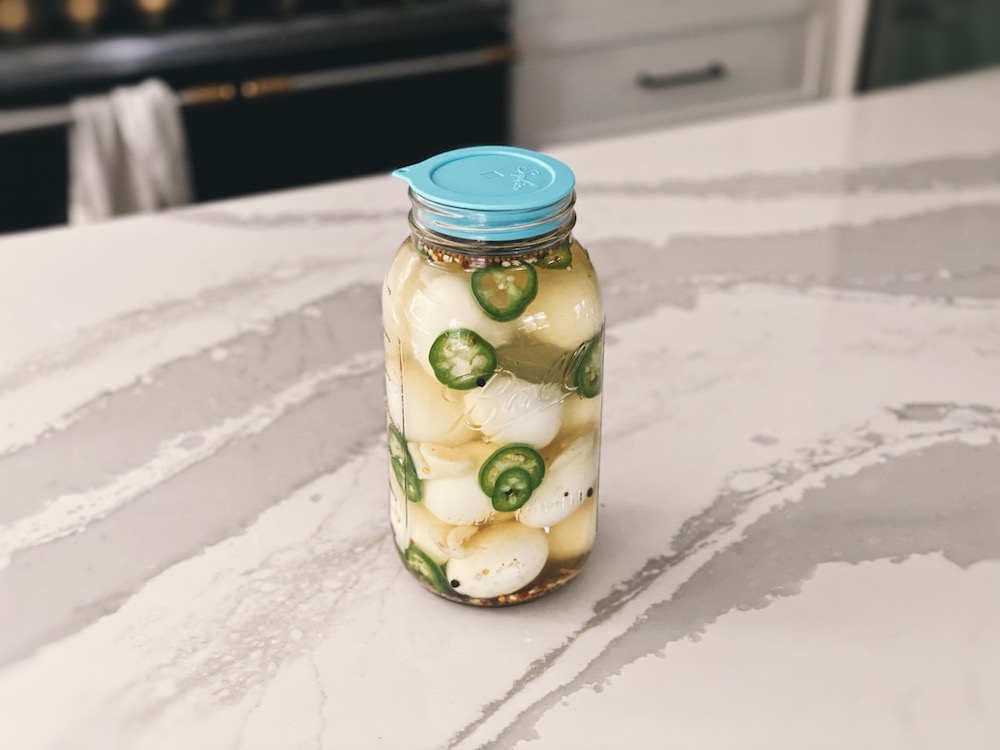
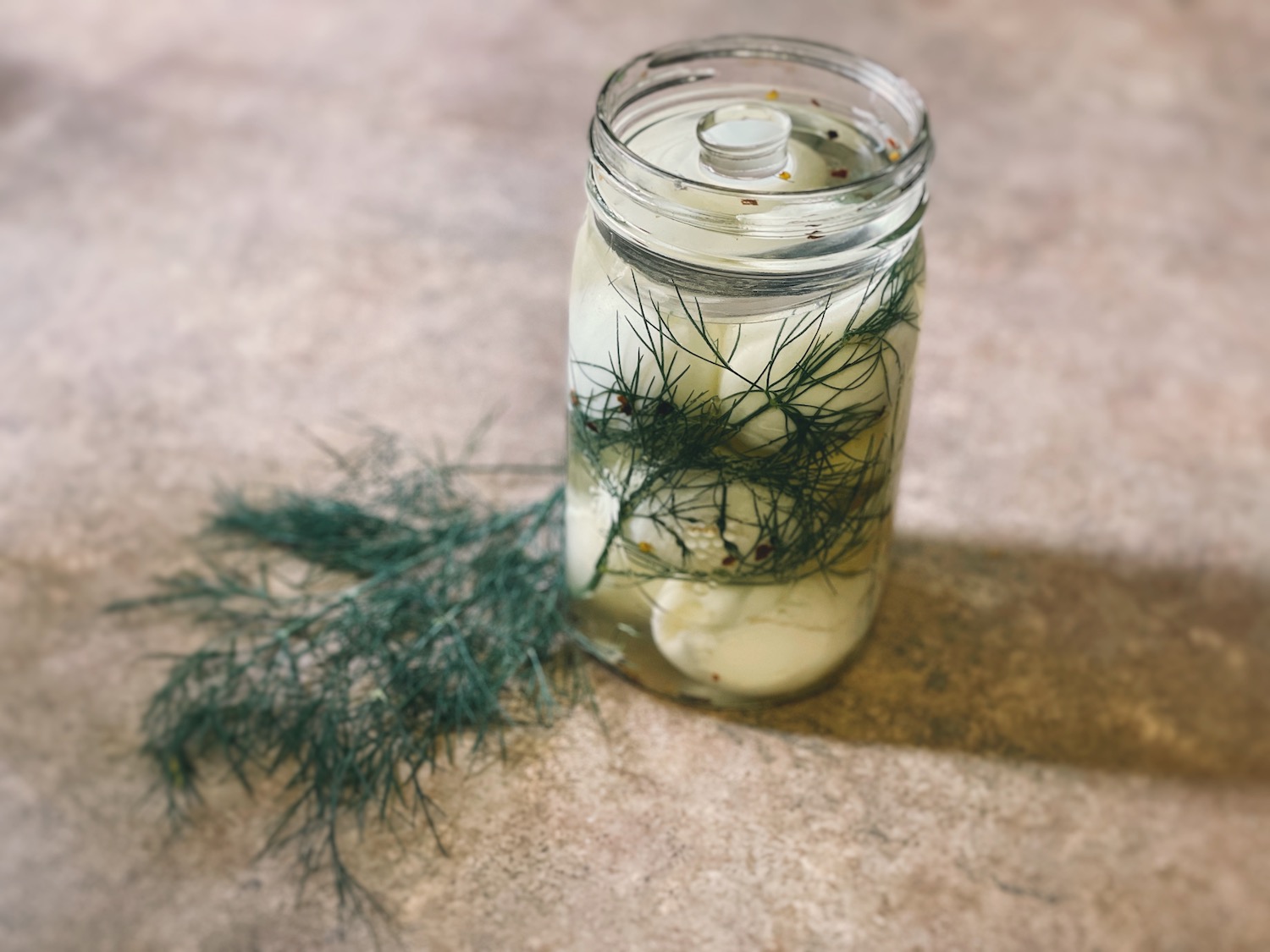



Thanks for the info. Friends are always asking about should I wash the eggs I give them and now since I just read all about preserving eggs I can let them know what they would enjoy doing.
You’re so welcome! I’m glad to hear it was helpful 🙂